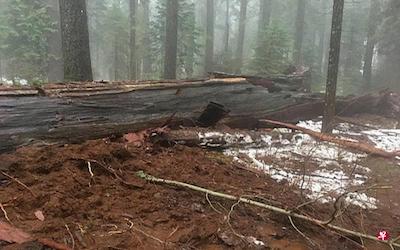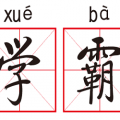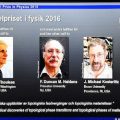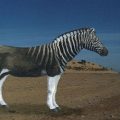PTE考生目前最大的问题之一就是练习题缺乏。除了有限的基本官方书(PLUS,Testbuilder, OG)之外就没有题了。很多英语基础不是很扎实的同学很难找到练习材料。悉尼文波雅思PTE培训学校专门为澳洲,尤其是悉尼、墨尔本的PTE考生准备了适合PTE听力阅读练习的科学60秒。各位PTE同学可以练习PTE听力中的summarise spoken text和PTE口语中的retell lecture,练习记笔记技巧和复述。
听力内容:
60秒科学节目(SSS)是科学美国人网站的一套广播栏目,英文名称:Scientific American – 60 Second Science,节目内容以科学报道为主,节目仅一分钟的时间,主要对当今的科学技术新发展作以简明、通俗的介绍,对于科学的发展如何影响人们的生活环境、健康状况及科学技术,提供了大量简明易懂的阐释。
This is Scientific American — 60-Second Science. I’m Christopher Intagliata.
Back in January, one of California’s oldest and most iconic residents keeled over: the Pioneer Cabin tree, a giant sequoia in Calaveras Big Trees State Park…so big you used to be able to drive through it.
The giant was blown over by high winds—delivered by what’s called an atmospheric river, a long stream of water vapor
in the atmosphere, 100 miles wide. These systems might be thought of as some of the biggest
rivers on Earth.
“You could kind of pose it that way, yeah.” Duane Waliser (WALL-i-ser), an atmospheric scientist at the Jet Propulsion Lab. “An atmospheric river will carry the same amount of water vapor as, say, 15 to 20 Mississippi Rivers.”
Waliser and his JPL colleague Bin Guan developed an algorithm to detect
atmospheric river sin historical data, so they could connect the sky flow to extreme events
on land. And they found that, if you look at just the top 2 percent most extreme wind-
and rain- and snow-storms in the world’s mid latitude regions—atmospheric rivers are linked to up to half of them.
And of the 19 windstorms in Europe that cost insurance companies
the most money—billions of dollars in damage—atmospheric rivers were behind three-quarters of those events. The study is in the journal Nature Geoscience.
Looking ahead, as global temperatures rise, that warmer air holds more
water vapor. “And so the tendency looks like, if the climate does warm, you would tend to
have stronger or more frequent atmospheric rivers.” And as this study shows: it won’t just
be that a hard rain’s gonna fall. We’ll be blowing in the wind, too.
Thanks for listening for Scientific American — 60-Second Science Science. I’m Christopher Intagliata.
墨尔本悉尼霍巴特文波PTE原创首发
更多精彩请持续关注微信wenbo_tv3。





